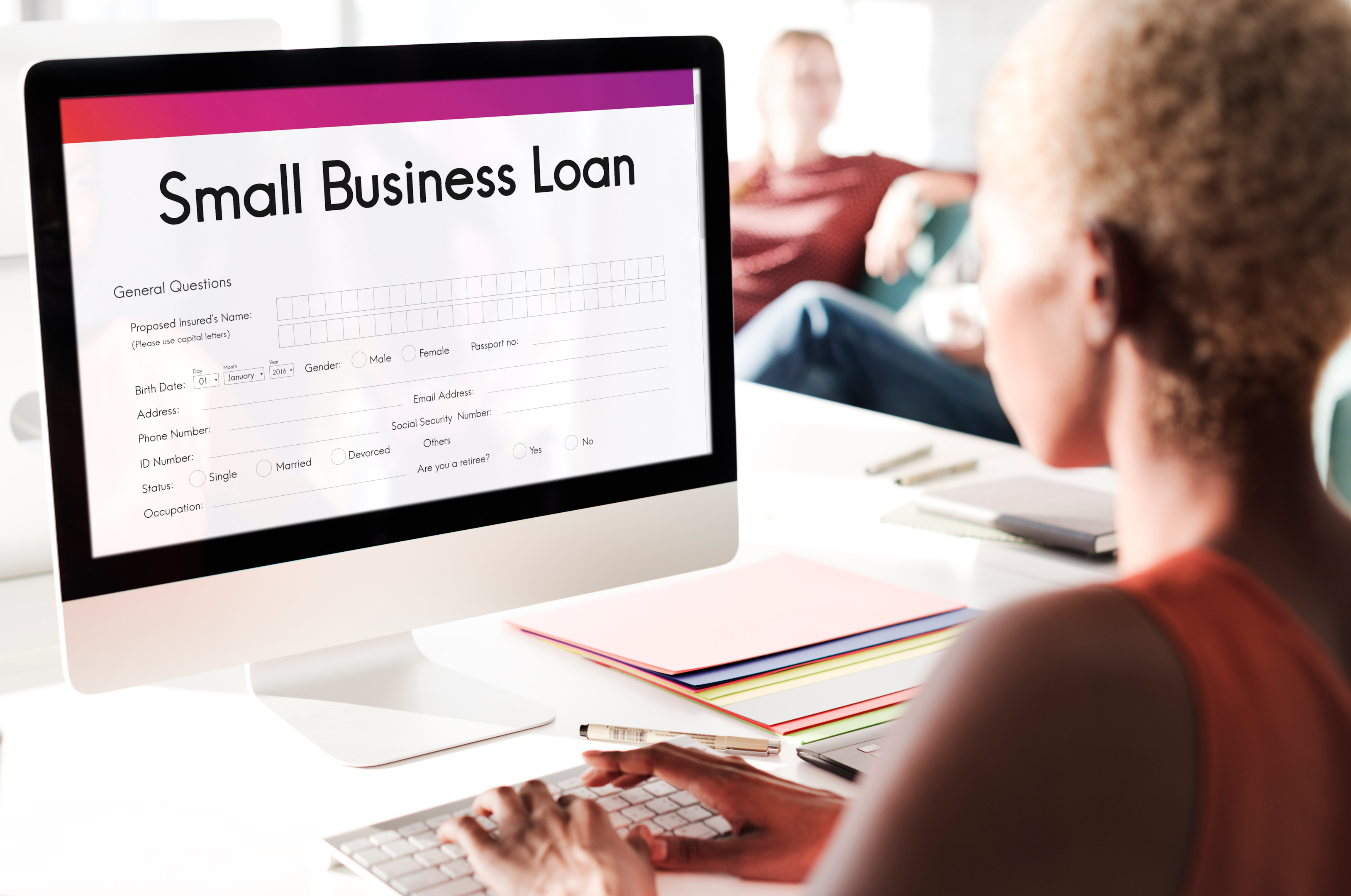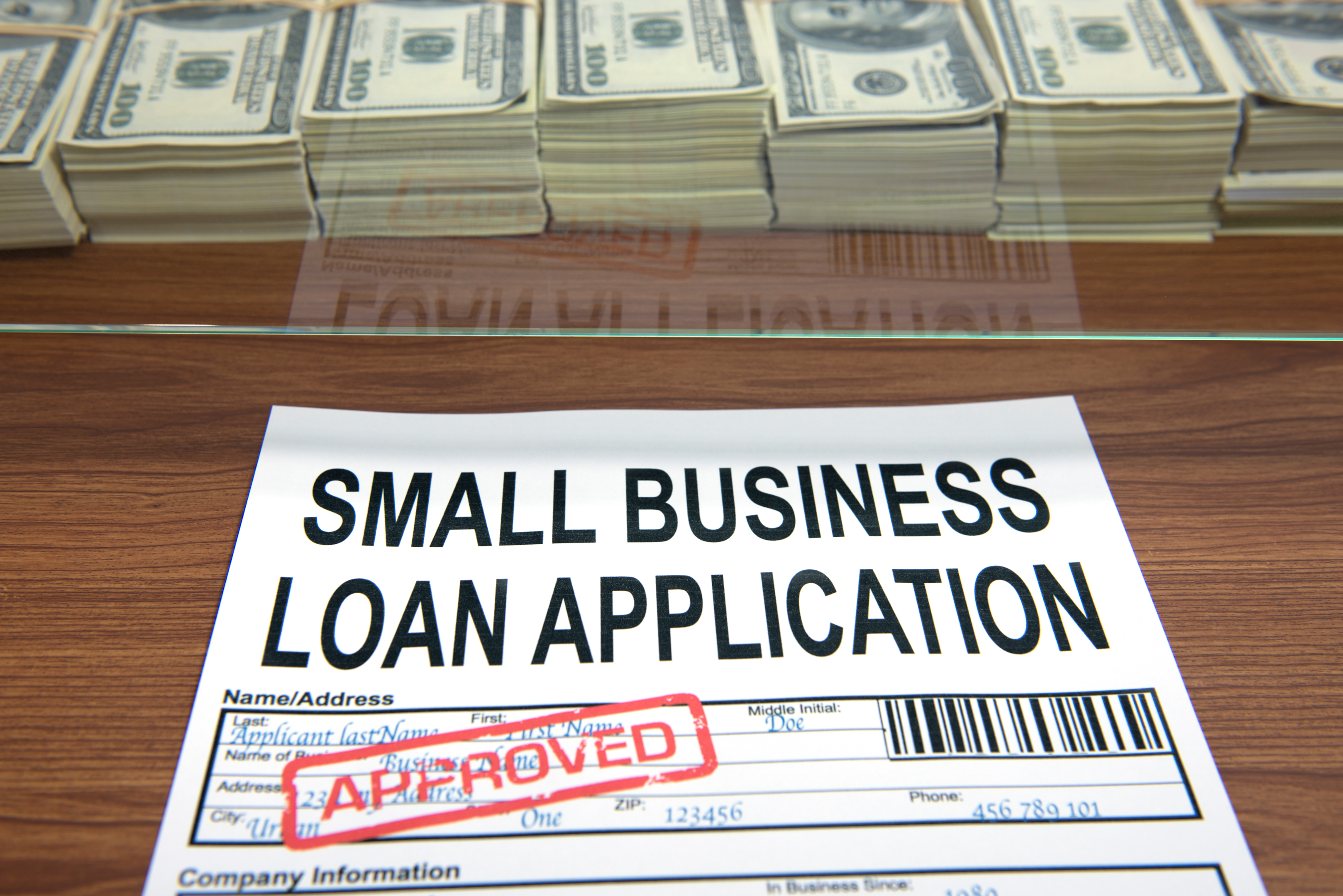The Startups Team
What is a small business startup loan?

A startup business loan is any type of loan that helps businesses with little to no business history. It's one of many financing options for founders who are looking to either get started or improve their young companies.
Can Startups get a business loan?
Yes, it is possible for startups to get business loans.
However, startups may face more challenges in obtaining financing than established businesses because they often have limited credit history and may not have a track record of profitability.
Startups should carefully research and compare the various financing options available to them and choose the one that best meets their needs and goals.
It's also a good idea for startups to work with a financial advisor or business coach to help them make informed decisions about financing.
How much money can you get with a startup business loan?
The amount of money a startup can get from a startup business loan will depend on a variety of factors, including the lender, the type of loan, and the borrower's creditworthiness and financial history.
startup business loans can range from a few thousand dollars to several hundred thousand dollars, depending on the needs of the business and the lender's criteria. Some lenders may have minimum and maximum loan amounts, while others may have more flexible lending guidelines.
Startups should carefully research and compare the various startup business loan options available to them and choose the one that best meets their needs and goals.
Startup business loans range from $20,000 to $500,000. But there are funding sources that will loan amounts from $500 (microlending) to $5,000,000 (the max amount for an SBA-backed loan. Entrepreneurial loans have a different process than any other form of business financing.
Do banks lend to startups?
In short, bank credit is available to startups when they have demonstrated the capacity to repay their loan. It usually equates to robust collateral. Lenders require borrowers to build something, usually their house or a significant investment.
Simple, but not easy.

While bank credit is often the most traditional and secure way for startups to obtain financing, in order to qualify for a startup business loan, startups must typically demonstrate their capacity to repay the loan through strong financials, a solid business plan, and a good credit score.
This is often done through the use of collateral, which is something of value that the borrower puts up as security for the loan. Collateral can include assets such as real estate, vehicles, or equipment.
Lenders may require startups to use collateral in order to reduce the risk of lending to a new business. By requiring collateral, lenders are essentially ensuring that they will be able to recover some or all of their investment if the borrower defaults on the startup business loan.
In order to qualify for a bank loan, startups may need to provide a detailed business plan outlining their financial projections and strategies for repayment. They may also need to provide financial statements, tax returns, and other documents to demonstrate their creditworthiness and financial stability.
Overall, obtaining a startup business loan from a bank can be a challenging process for startups, particularly those with limited credit history, bad credit scores, or no collateral.
However, with careful planning and strong financials, it is possible for startups to secure the financing they need to grow and succeed.
How can startups use business loans?
Startups can use business loans to fund a variety of needs, including:
Working capital: Business loans can be used to cover the day-to-day expenses of running a business, such as payroll, rent, and utilities.
Expansion: Business loans can be used to fund the expansion of a startup, such as opening a new location or hiring additional employees.
Equipment purchases: Business loans can be used to purchase equipment or machinery needed for the business to operate.
Marketing and advertising: Business loans can be used to fund marketing and advertising efforts to help a startup reach new customers and grow.
Inventory: Business loans can be used to purchase inventory for a startup to sell.

What types of startup loans are there?
Startup business loans is an umbrella term under which a few different types of financing fall.
Here's a general breakdown of the main types of startup loans you might run across as you're figuring out the best option for financing your startup.
Each section gives a clear outline, with some links to more in-depth information if you're interested in learning more.
1. SBA loans
An SBA small business loan is a loan that is backed by the Small Business Administration (SBA).
Founded in 1953, the SBA is a federal government program that provides support to small business owners in the form of mentorship, workshops, counseling, and small business loans.
a. Who qualifies?
There are three main types of SBA small business loans:
504 Loan Program
7(m) Microloan Program.
Each type of SBA small business loan has slightly different requirements, but generally, you have to qualify as a small business according to the SBA size requirements, be a for-profit business, operate within the United States, have good personal and business credit, and not have other financing options (like your own wealth).
b. Loan amounts
SBA loans have an upper limit of $5 million. Therefore, they're a better option for small businesses and startups who need smaller amounts of capital, versus those who might need many millions of dollars, and who would be better served by traditional business loans.
c. Time to fund
The process for applying for an SBA loan can take up to six weeks, with some taking only a couple of weeks. If you qualify for an SBA loan, you can expect your funds as soon as one week after qualifying.
d. Interest rates
As of December 2022, maximum interest rates on SBA loans range from prime +3.5% to prime +4.5%.
e. Pros of SBA loans
The loan is backed by the federal government. That means banks are more likely to loan to riskier companies — like startups — than they might otherwise.
The equity requirement is relatively low compared to other loans.
People and companies who don't have access to other forms of capital might find it easier to qualify for a microloan than for a larger or more traditional loan type.
f. Cons of SBA loans
SBA small business loans are relatively small. They have an upper limit of $5 million.
g. How to apply
If you're interested in applying for an SBA loan, you can check out the SBA website to find a financial institution in your area that provides SBA loans. Here are some good tips on how to apply that you may want to read before you get started.

2. Credit cards
While not a traditional “loan,” business credit cards are a great option for very early-stage startups who need help getting going.
Choose one with a 0% introductory APR interest rate, because that means that as long as you're able to pay off the balance each month (or at least by the end of the first year, which is when most credit cards interest rates kick in), you're basically getting a free loan.
However, beware, you'll eventually pay interest, and don't overestimate how quickly you'll be able to pay back a credit card. Once that introductory period is over, any balance you're carrying will likely come with a hefty interest rate.
a. Who qualifies?
Credit cards usually have very few requirements for qualification. Banks are in the business of profiting off of small businesses. (While, yes, helping them grow.)
However, people with bad personal credit will find it difficult to qualify for a business credit card, as most banks are going to look at your personal credit to determine whether or not they're willing to give you a credit card for your new business or startup.
Most banks use the FICO scoring system, which is:
Excellent Credit: 750+
Good Credit: 700-749
Fair Credit: 650-699
Poor Credit: 600-649
Bad Credit: below 600
Check your credit rating with one of the big three credit agencies before starting the process of applying for a business loan.
b. Loan amounts
The business loan amount — or credit line — that you can get with a credit business card depends totally on the type of card, your personal credit history/credit score, your business credit history (if you have any), and your business itself.
However, the highest business credit limit right now probably tops out at around $50,000.
c. Time to fund
Unlike other sources of small business funding, credit cards are very quick to apply for. Once you've been approved, you can expect to have your card in hand within seven to 10 days.
d. Interest rates
Interest rates vary from card to card. As mentioned above, it's a good idea to go for a card that has an initial 0% APR (annual percentage rate). That way you have a year without any interest whatsoever.
As of December 2022, the common APRs offered online for business credit cards was 20.2%, which is about 2.3 points lower than average for personal cards, but you be pay interest that's 1.7% higher than June of 2022 as rates have risen across the board.

e. Pros of business credit cards
They're easier to get than other loans or lines of credit.
They have higher credit limits than personal credit cards.
They can help boost your credit rating.
It's easier to keep personal and professional expenses separate for the business owner.
You can build up points that can be used for travel and other perks.
It's easier to keep track of employee spending if you have employees, and some even offer preset employee spending limits.
It helps build a credit history for your business.
f. Cons of business credit cards
If you have trouble making payments, it may affect your personal credit.
High-interest rates, late fees, and annual fees can add up and be brutal.
Many business cards don't have purchase protection.
Business credit cards often have a higher APR than personal cards.
Interest rates can fluctuate.
A business credit card may come with foreign transaction feeds.
g. How to apply for a business credit card
First, get your credit score so you can determine which business credit cards you even qualify for. You can get it from one of the big three credit agencies
Once you have that, calculate your business' annual revenue — the credit card agency is going to want to know that information.
Decide what kind of rewards program you want, and then go take a look at different business credit cards to see what's the best fit.
Maybe make a spreadsheet of the factors most important to you — like APR, credit score needed, limits, rewards, signup bonuses, etc. — in order to do a side-by-side comparison.
Then, apply via the card's website. That's it! If you're rejected for your first choice move on to the next. There are plenty of options out there.
Here are some of Credit Karma's best recommendations for Business Credit Cards and Business Loans.

3. Short-term loans
Short-term loans are relatively small amounts of money that have to be paid back within three to 18 months.
They're often used as a stop-gap when a company is having cashflow problems, for emergencies, or to help companies take advantage of a business opportunity. These often come in the form of signature or personal loans, requiring little or no collateral, but relying on the applicant's personal credit score.
a. Who qualifies?
Short-term loans are a good option for startups with good cash flow who have been in business for at least two years. If your startup has good cash flow, it may even override other factors like poor credit.
Companies that make between $25,000 and $150,000 yearly, with a credit score of at least 600, and who have been in business for at least two years may consider this option.
b. Loan amounts
Short-term loans are usually between $2,500 and $250,000.
c. Terms
The loan terms for short-term loans are usually between three and 18 months.
d. Time to fund
The time to funds for short-term loans is extremely fast! If you qualify, you can expect access to the funds as quickly as one day.
e. Interest rates
Interest rates start at 10%.
f. Pros of short-term loans
People with less-than-perfect credit or a low personal credit score may apply.
There's very little paperwork required.
Short-term loans come with a set payment structure.
They can be used for a range of purposes, including FILL IN.
g. Cons of short-term loans
Payments have to be made weekly.
May have higher annual costs than longer-term loans.
h. How to apply for a short-term loan
Short-term loan applications tend to be simple and relatively short, like the loans themselves. You'll need your driver's license, a voided business check, proof of ownership of your company, bank statements, your credit score (business and personal), and your personal tax returns.

4. Small business grants
Small business grants are offered by the government and some private interests to promote small business growth. They don't have to be repaid, which can make them an appealing option for startups and small businesses that qualify.
a. Who qualifies?
Most small businesses probably won't qualify for small business grants, as they're tied directly to US government agencies that have specific goals. However, research and development companies often do well, as do some high-tech companies.
State-level grants are also tied to direct economic or social needs and many of them are matching grants. That means that you're expected to match the amount you're loaned with your funds.
Finally, there are local small business grants that are usually less competitive than federal or state grants but are often for less money.
If your startup is clearly helping your local community, this could be a good avenue for getting some funding.
b. Loan amounts
Small business grants can be as low as a couple of thousand dollars and as high as a few hundred thousand. They are generally a lower amount of money than other financing options.
c. Terms
The terms of each grant depend entirely on the grant.
d. Time to funds
Small business grants take a long time to get. You can expect at least a year from the beginning of the process — and three to six months after applying — to get funding, if you qualify.
e. Interest rates
There is no interest with a small business grant because you don't have to pay anything back!
f. Pros of small business grants
You don't have to pay anything back.
No interest, because it's not a loan.
g. Cons of small business grants
They're difficult to qualify for.
The provisions for how you use the money are very specific.
They're difficult to find.
They can't be used to start a business.
They can't be used to pay off debt.
They can't be used to cover operational expenses.

5. Friends and family
Getting money — in the form of loans or investments — from family and friends is another one that doesn't fall under the traditional “small business loan” category. But, it's a common way for startup founders to get money to either start their companies or get help along the way.
Friends and family are a great source of early investment or startup business loans — but it can be a tricky relationship to navigate. It's common for people to feel like they can be casual and personal with these types of investments because their relationships with the investors are personal. That's a mistake.
You should treat investment or a startup business loan from friends and family as a professional addition to your existing personal relationship. It's a good idea to get a written contract stipulating the terms of the investment or loan and also to make it clear that it's very, very likely they won't get their money back if it's an investment.
a. Who qualifies?
Anyone with family and friends who have the money and are willing to lend or give it qualifies!
b. Advantages of working with friends and family
The biggest advantage of borrowing money from friends and family lies in the fact that you already have an established, trusting relationship with these people. That means they're easier to get a meeting with, more inclined to say “yes,” and are more likely to be flexible with their expectations and timeline.
The structure of the loan will also likely be simpler than the structure of a loan obtained through more formal means. When you borrow from friends and family, you don't have to worry about long, complicated applications.
c. Disadvantages of working with friends and family
Introducing large sums of money into a relationship that was previously entirely personal has the potential to ruin that relationship. That's a particularly big risk if a startup fails — as most do — and investors lose all of their investment or you're not able to pay back a loan. It's important for you to be very clear about the potential for loss with investment money or loans from friends and family.
Friends and family members also may not be able to add value to a company in the same way that more formal, established investors can. Venture capitalists, for example, typically invest in startups in fields that they are familiar with. Having that kind of knowledge on board is a huge advantage for any new company.

Other startup financing options
But startup business loans are just one option for startups and small businesses looking for financing. Check out our guides below:
Stay tuned for future guides!
Find this article helpful?
This is just a small sample! Register to unlock our in-depth courses, hundreds of video courses, and a library of playbooks and articles to grow your startup fast. Let us Let us show you!
Submission confirms agreement to our Terms of Service and Privacy Policy.
No comments yet.
Start a Membership to join the discussion.
Already a member? Login